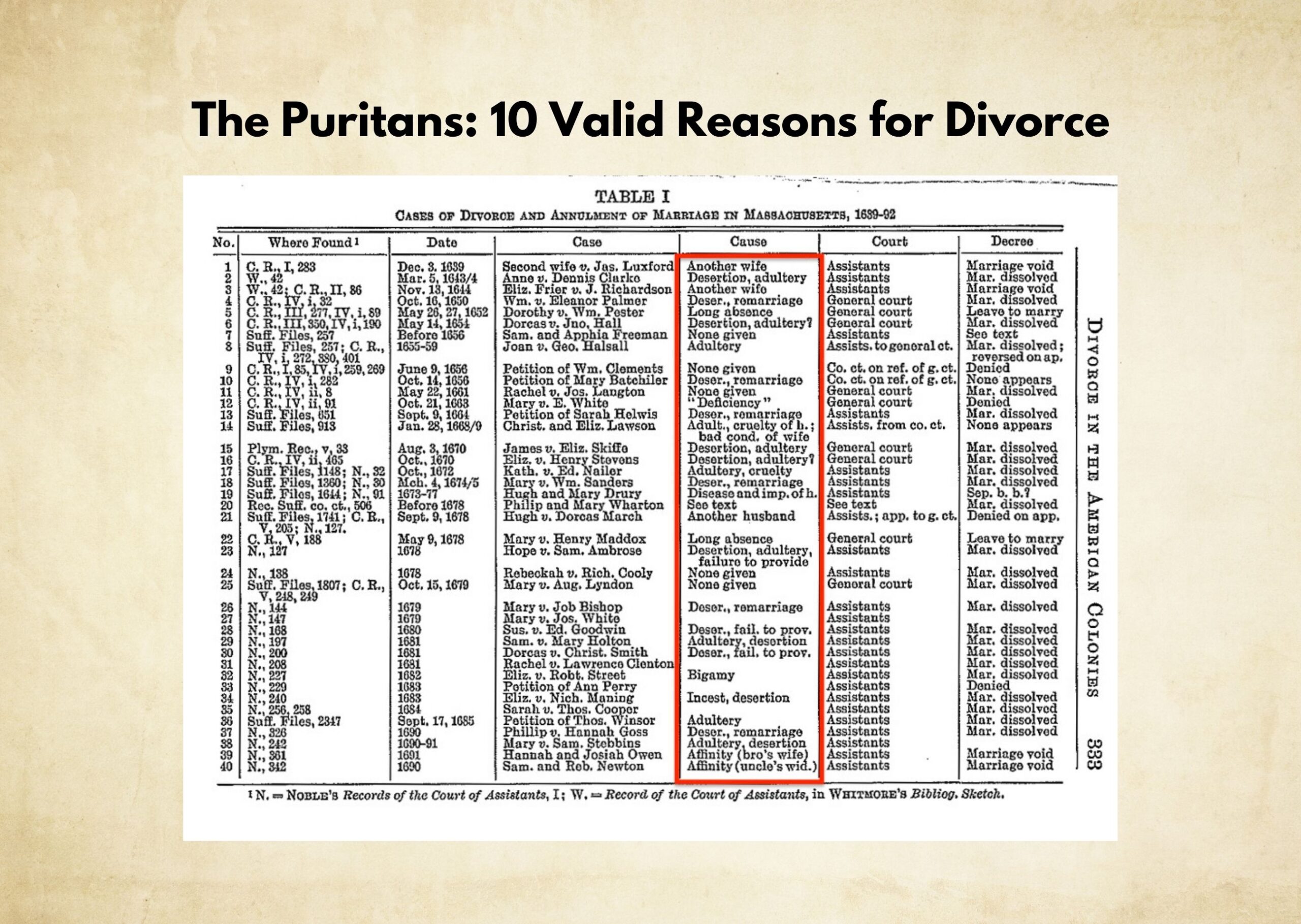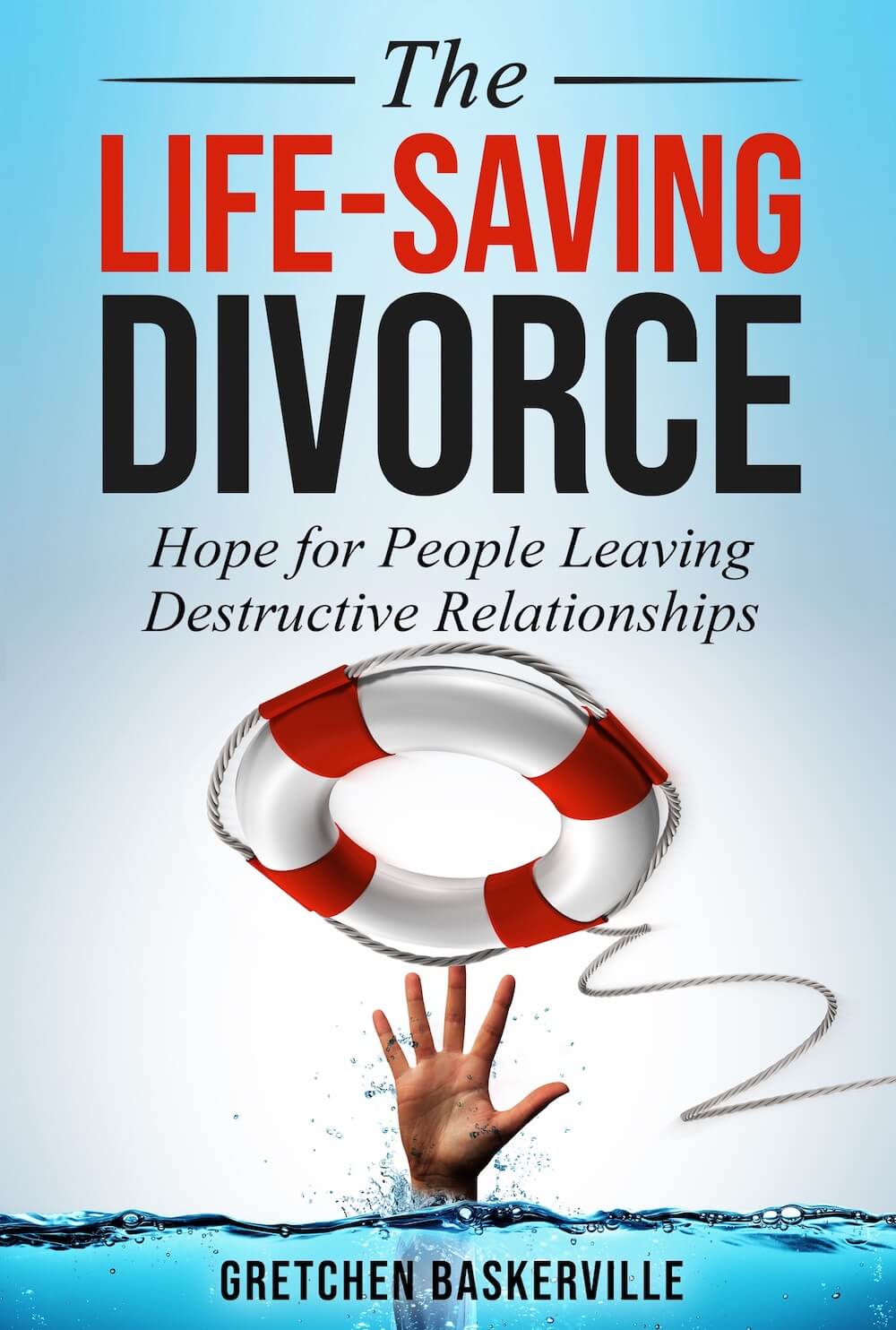This table shows every known divorce among the Massachusetts Puritans 1639-1692. There are 40 divorces listed and the columns give the record location and page, the date, the names of the individuals, the cause of the divorce, the court (the jurisdiction), and the decree (the final judgment)
Did the Puritans Divorce, or Did They Have a Utopian Society?
The first known divorce in America was on December 3, 1639, when Elizabeth Luxford discovered her husband James Luxford already had another wife and went to the court for justice. The magistrates were not pleased with James. They granted Elizabeth the divorce, took James’s property, gave it to Elizabeth, and- “Next, the court turned its wrath on the deceitful Luxford. Not content with levying a fine of £100 on the bigamist, it sentenced him to ‘be set in the stocks an hour upon the market day after the lecture,’ and to be banished to England ‘by the first opportunity.'”
There weren’t a lot of divorces in Puritan society, but we do have records of forty of them.
Notice the causes the Puritans listed for the divorce:
-
Another wife
-
desertion
-
adultery
-
remarriage
-
long absence
-
deficiency
-
cruelty
-
bad condition of wife
-
cruelty of husband
-
disease and impotence of husband
-
desertion, failure to provide
-
bigamy
-
incest
-
affinity (meaning consanguinity, too closely related)
The Puritans rejected the Roman Catholic and Anglican view of marriage as a sacrament and therefore unbreakable. They considered Roman Catholic views to be a “popish invention, with no basis in the Gospels.” They saw marriage as a civil matter, not a religious one. According to the New England Historical Society, “In 1620, [Plymouth Plantation] leaders decided marriage belonged to the courts, not to the church. Therefore, they concluded, the courts could grant a Puritan divorce.” They often granted alimony to the wife if she was the innocent party.
John Calvin’s Influence on the Puritan View of Marriage
The famous Reformer John Calvin (1509-1564) was angry at men who abused their wives. He thought those cruel husbands should divorce and let their tyrannized wives go free.
So Calvin interprets it to say “If you hate your wife, divorce her,” says the Lord God of Israel…” This is how nearly all Bibles for the 2,100 years before the King James version interpreted Malachi 2:16. It is in keeping with the teaching in Exodus 21:10-11 that commands a man to divorce his wife if he refused to provide the basic minimum level of physical and emotional care.
Here John Calvin is talking directly to abusive husbands who try to hide their bullying behavior from God and others.
“What else is this,” he says, “but to cover by a cloak your violence, or at least to excuse it? for ye do not openly manifest it: but God is not deceived, nor can his eye be dazzled by such a disguise: though then your iniquity is covered by a cloak, it is not yet hid from God; nay, it is thus doubled, because ye exercise your cruelty at home; for it would be better for robbers to remain in the wood and there to kill strangers, than to entice guests to their houses and to kill them there and to plunder them under the pretext of hospitality. This is the way in which you act; for ye destroy the bond of marriage, and ye afterwards deceive your miserable wives, and yet ye force them by your tyranny to continue at your houses, and thus ye torment your miserable wives, who might have enjoyed their freedom, if divorce had been granted them.”
Notice how Calvin says it’s one thing for a robber to kill a traveler in a forest out in the open, where that person knows there is danger. But it’s especially treacherous for a robber to offer hospitality and invite a guest into their home and then kill and pillage them. And yet this is what cruel men do to their wives. They pretend to honor the marriage bond, but instead they torment their wife under her own roof, secretly, hidden under a cloak, in the one place that ought to be safe. John Calvin says, God sees it, and he isn’t dazzled by clever concealment. In fact, the concealment makes it twice as bad. It would be better to let the tormented wife go and enjoy her freedom.
Footnotes
Table: This table of every known Massachusetts Puritan divorce was published in the book, A History of Matrimonial Institutions, Vol 2, by George Elliot Howard, 1904. University of Chicago, p. 333.
Puritan view of marriage: “The Puritan Divorce Allows Escape From the Chain of Matrimony,” New England Historical Society (2019), accessed 8/17/19, http://www.newenglandhistoricalsociety.com/puritan-divorceallows-escape-from-the-chain-of-matrimony/.
Luxford divorce: Glenda Riley, Divorce: An American Tradition (Oxford: Oxford Press, 1991), 12. Male adultery wasn’t accepted as grounds for divorce in Massachusetts until the late 1700s. In a farming society, female adultery was considered much worse because a child could make a claim to inherit the land. Regarding impotence, in virtually all ancient agrarian societies, even in Jewish society prior to Christ, the inability to bear children was a serious problem. Men were responsible for having at least two children.



 :
:
 Buy PDF
Buy PDF